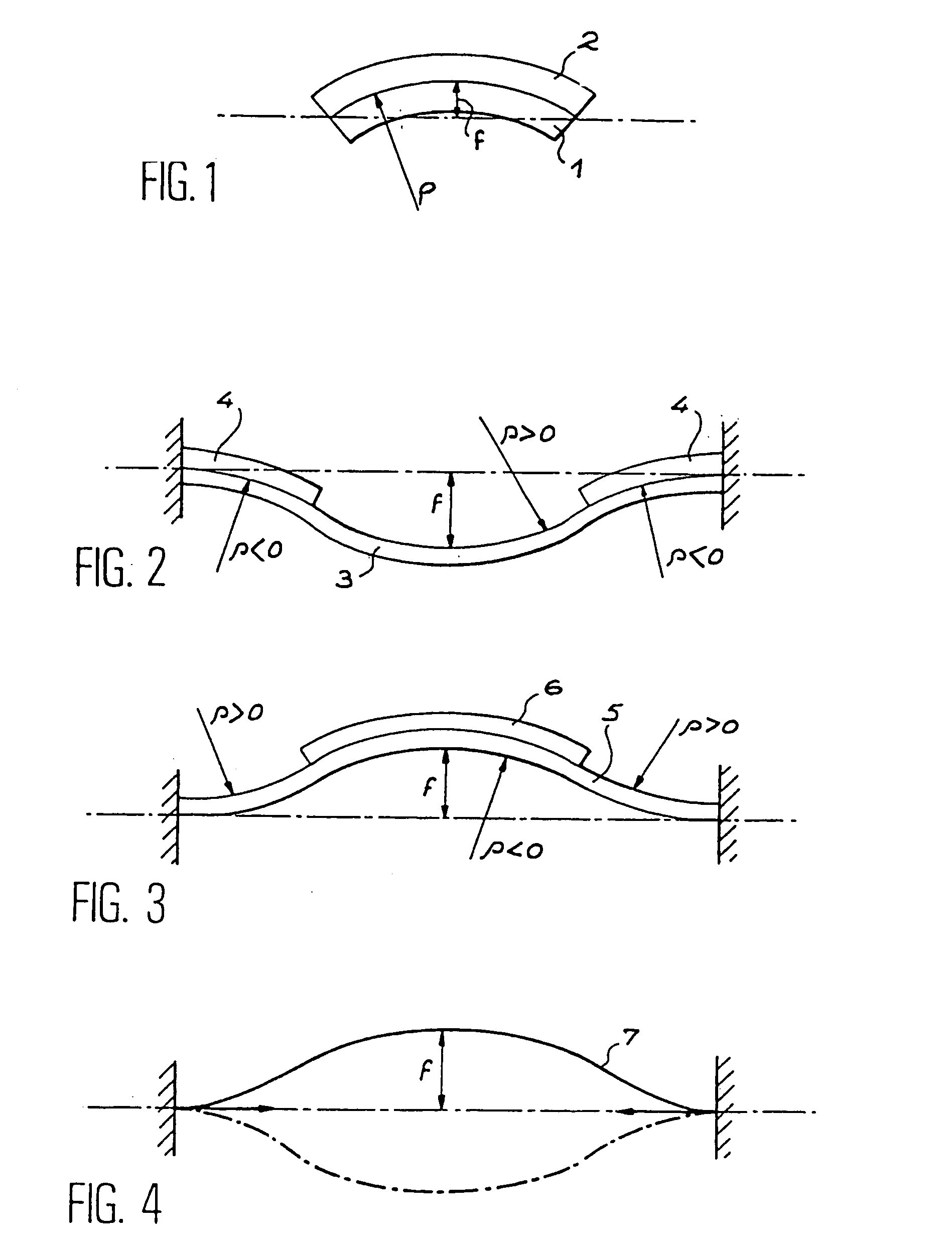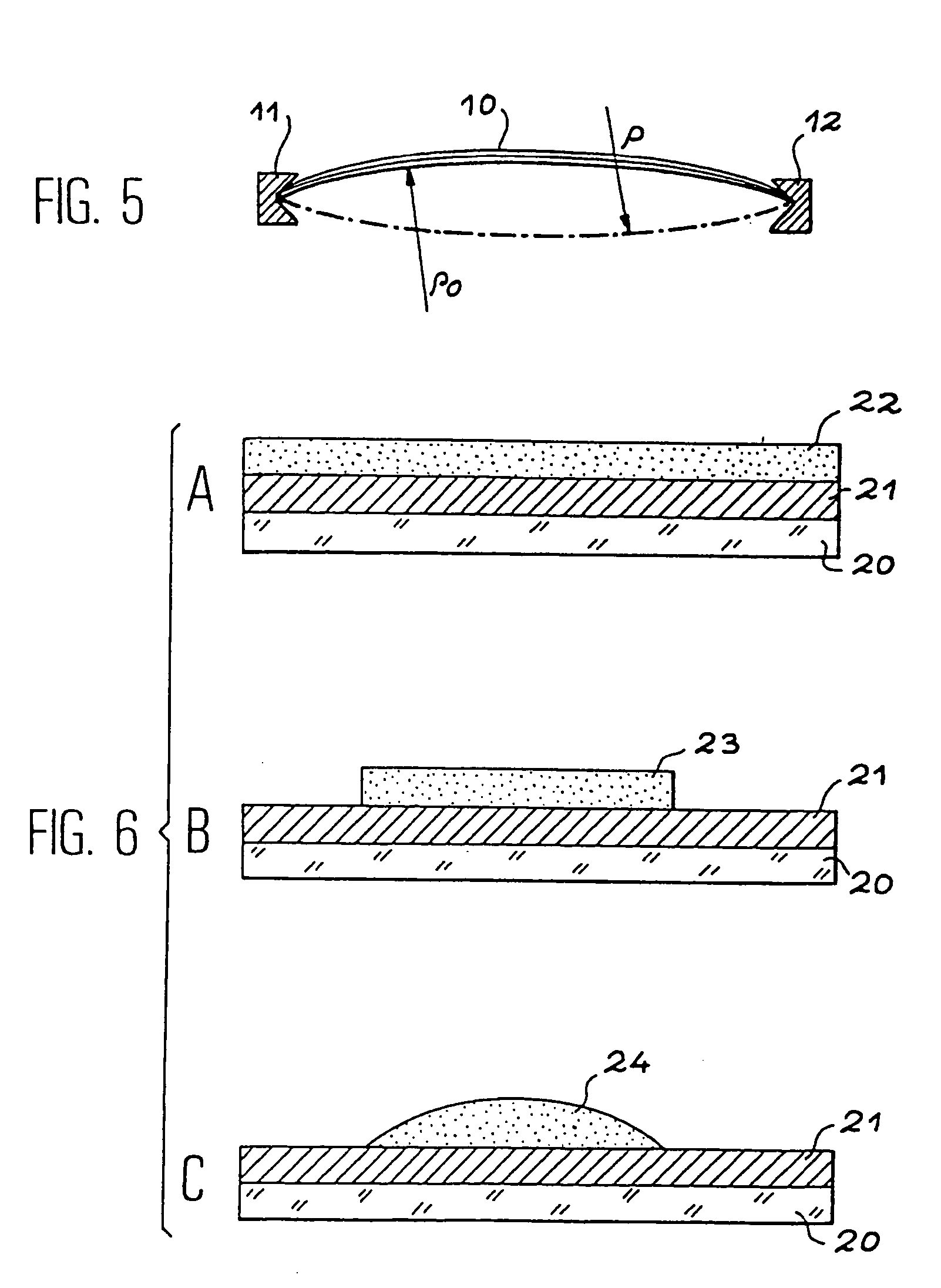Microsystem with an element which can be deformed by a thermal sensor
a thermal sensor and microsystem technology, applied in microstructured technology, piezoelectric/electrostrictive device manufacture/assembly, variable capacitors, etc., can solve the problems of piezoelectric and magnetostrictive materials, difficult to use with classic micro-machining processes, and inability to obtain just a bimetal
- Summary
- Abstract
- Description
- Claims
- Application Information
AI Technical Summary
Benefits of technology
Problems solved by technology
Method used
Image
Examples
Embodiment Construction
In general, structures obtained by microtechnology processes have planar geometry. Manufacturing of naturally deflected beams or membranes thus requires particular attention.
The processes which will now be described deposit the deformable element on a layer called the sacrificial layer which is then eliminated at the end of the process. A Si3N4 deformable element (beam or membrane) can be made using a sacrificial layer of tungsten.
A first variant of the process according to the invention illustrated by FIGS. 6A to 6H yields a microsystem with a deformable element (beam or membrane) which is non-planar and non-forced. On a substrate 20, made of glass for example, the sacrificial layer 21 (made of tungsten for example) is first deposited, then a layer of photosensitive resin 22 (FIG. 6A). The resin layer is etched to leave only a mass of resin 23 of which the area is determined by the desired deformable element (FIG. 6B). By thermal treatment, the flow of the photosensitive resin...
PUM
| Property | Measurement | Unit |
|---|---|---|
| temperature | aaaaa | aaaaa |
| stress | aaaaa | aaaaa |
| mass | aaaaa | aaaaa |
Abstract
Description
Claims
Application Information
 Login to View More
Login to View More - R&D
- Intellectual Property
- Life Sciences
- Materials
- Tech Scout
- Unparalleled Data Quality
- Higher Quality Content
- 60% Fewer Hallucinations
Browse by: Latest US Patents, China's latest patents, Technical Efficacy Thesaurus, Application Domain, Technology Topic, Popular Technical Reports.
© 2025 PatSnap. All rights reserved.Legal|Privacy policy|Modern Slavery Act Transparency Statement|Sitemap|About US| Contact US: help@patsnap.com



